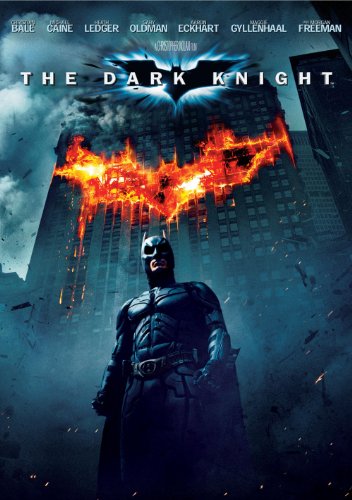All Nonfiction
- Bullying
- Books
- Academic
- Author Interviews
- Celebrity interviews
- College Articles
- College Essays
- Educator of the Year
- Heroes
- Interviews
- Memoir
- Personal Experience
- Sports
- Travel & Culture
All Opinions
- Bullying
- Current Events / Politics
- Discrimination
- Drugs / Alcohol / Smoking
- Entertainment / Celebrities
- Environment
- Love / Relationships
- Movies / Music / TV
- Pop Culture / Trends
- School / College
- Social Issues / Civics
- Spirituality / Religion
- Sports / Hobbies
All Hot Topics
- Bullying
- Community Service
- Environment
- Health
- Letters to the Editor
- Pride & Prejudice
- What Matters
- Back
Summer Guide
- Program Links
- Program Reviews
- Back
College Guide
- College Links
- College Reviews
- College Essays
- College Articles
- Back
The Dark Knight
The Dark Knight is the "dark second act" of the trilogy. Batman loses his ideological battle with the Joker, even if he wins the physical one. The Joker is a manifestation of the backlash that occurs when extreme methods are used to solve a problem. As Gary Oldman’s character puts it so simply at the end of Batman Begins, the Joker is “escalation”, similar to the insurgency that occurred in Iraq after the overthrow of Saddam Hussein. The criminal power vacuum in Gotham also draws parallels to the power vacuum in Iraq after Hussein’s overthrow. While you could say Batman is a Jack Bauer-esque “does what needs to be done” conservative type of hero, it is clear in The Dark Knight that those methods and that ideology is being indicted. Ultimately, at the end of the movie, Batman realizes that the people deserve more than what his methods can bring them, because his methods have failed them. While he may have inspired good people like Harvey Dent to take action in a more legal manner, the escalation he caused ultimately led to the undoing of all that good work. What Batman realizes, and tries to fix through his cover up, at the end of the movie is that he is not the right symbol for Gotham, but Dent is. Dent’s actions were the right course, because they didn’t betray the people’s trust. Dent used the system and worked within its confines, set up for a reason, in order to get the results necessary for Gotham’s well-being. Batman moved outside of that system and if he can move outside of it, then why can’t the Joker? That’s the question The Dark Knight asks. What makes us different from them? And it’s not the most delicate movie; it literally puts the words in the Joker’s mouth. The reason The Dark Knight is so devastating is because it’s meant to be the consequences to Batman’s decision to go too far.
Piling on the post-9/11 allegory, there is a component to the Joker that is eerily similar to modern day terrorists. He seems to have a cause and a point he’s trying to make, which is illustrated by his scene with Dent in the hospital: the status quo is not as good as people seem to think and people like Batman are out to preserve it, but is it really worth preserving? This combines with the idea mentioned earlier that Batman is going too far. It’s asking what Batman is going so far to protect? Is this worth protecting? Obviously, it is, but the Joker’s points about society’s ills aren’t entirely untrue and that’s part of what make him such a terrifying villain. Purely on speculation from trailers, I think The Dark Knight Rises is seeing that idea pervade the general populous, which is kind of what the Joker wanted to do when he influenced Harvey to take revenge. It seems like the people in The Dark Knight Rises have lost faith in the powerful institutions (and the people who run them), partially because, the trailers seem to indicate that Dent’s crimes are revealed. In this way, The Dark Knight Rises seems to be looking into our nation’s current relationship with politics, the same way The Dark Knight analyzed our relationship with national security, and the same way that Batman Begins analyzed what must be done when a situation gets so bad. Of course anything about The Dark Knight Rises is all speculation, but it’s these ideas that make The Dark Knight and the Nolan Batman series so praiseworthy. Does it have pacing issues? Yeah, it does. Is the Two-Face plot under developed? Yes it is! But that doesn’t change that it’s integral to the themes of the movie and that it makes more sense for it to be in the movie than out of it. Without it, the point isn’t expressed and it’s just another superhero movie where the hero saves the day. The fact of the matter is that The Dark Knight elevates blockbusters above your typical schlock. It gives you explosions, gun fights, men in costumes, and globe-hopping, while simultaneously grasping at real themes of what makes a hero and where we draw lines as a society. And for the record, I think Eckhart acts the hell out of his role to the point where he’s able to move past some of the pacing issues with his plot and really sell his transformation and descent into madness.
Similar Articles
JOIN THE DISCUSSION
This article has 0 comments.

